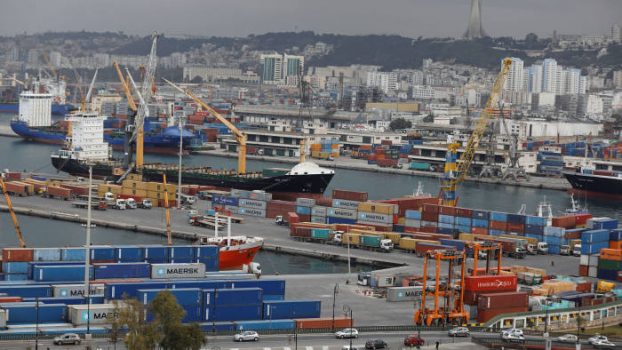 The African Union (AU) celebrated making one more step toward creating a continent-wide market of 1.2 billion people worth $2.5 trillion with the signing of the historic African Continental Free Trade Area (AfCFTA) on Thursday.
The African Union (AU) celebrated making one more step toward creating a continent-wide market of 1.2 billion people worth $2.5 trillion with the signing of the historic African Continental Free Trade Area (AfCFTA) on Thursday.
Fifty-two of the AU’s 55 member states signed the agreement to establish the free trade area since March 2018, with the notable exception of Eritrea, Benin Republic and the continent’s largest economy, Nigeria.
Local businesses and manufacturing associations in the three countries had raised concerns about the negative impact the signing of the agreement would have on its members.
The AfCFTA had initially been ratified by 22 countries by April 29, the requisite number for formally notifying the AU. That paved the way for it to take effect 30 days later as stipulated in its statutes.
Some of Africa’s other economic heavyweights including Ethiopia, Kenya, Egypt and South Africa were among the 24 nations which had formally ratified it. Last month, Zimbabwe and Burkina Faso joined the fold.
Although there are still a number of outstanding issues to be resolved, including arbitration measures, certifying the origins of goods and tackling corruption, the agreement’s operational phase would be launched on July 7 at an AU summit in Niger.
The AU envisions that the free trade zone, once fully implemented would drive economic integration and spur investment within the continent.
It also hopes that the progressive elimination of tariffs will help boost intra-Africa trade by 60 percent within three years. At the moment, only 16 percent of trade by African nations is with continental neighbours.
“This is a historic milestone!. We celebrate the triumph of bold, pragmatic and continent-wide commitment to economic integration,” AU’s Commissioner for Trade and Industry, Albert Muchanga tweeted.
“We launch market on 7 July, 2019 & begin the journey of transformation 2 secure inclusive prosperity,” he added.
Advocates for the trade zone say it will help develop African economies, long driven by a focus on resource exploitation and provide a platform for negotiating with markets beyond the continent.
However, critics say poor infrastructure and a lack of diversity between the various economies could throw up barriers to this envisioned integration.
The AfCFTA is expected to create a single continental market for goods and services, enhance free movement of business persons and investments and enhance competitiveness at the industry and enterprise level by exploiting opportunities for full-scale production.
The agreement, which was first introduced in January 2012 during the 18th Ordinary Session of the Assembly of Heads of States and Governments of the African Union held in Ethiopia will also enforce the establishment of the Continental Customs Union and the African Customs Union.

Dangote Announces ₦739 Per Litre Petrol Price Cut Nationwide
CBN Introduces New Nationwide Cash-Withdrawal Limits
Nigeria’s Foreign Reserves Hit $46bn For First Time Since 2018 — CBN
Nigeria’s Oil Output Rises Slightly to 1.4m Barrels Daily